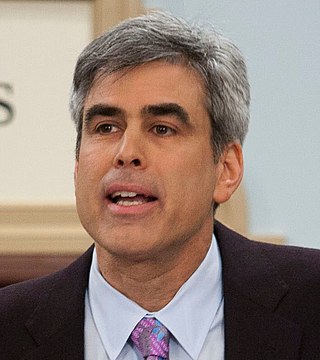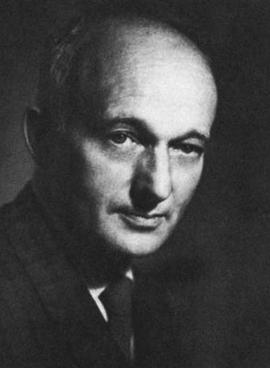Related Research Articles

Leadership, both as a research area and as a practical skill, encompasses the ability of an individual, group, or organization to "lead", influence, or guide other individuals, teams, or entire organizations.

Crowd psychology is a branch of social psychology that deals with the ways in which the psychology of a crowd is different from the psychology of the individual persons who are in the crowd. The field of crowd psychology enquires into the behaviors and thought processes of both the individual members of the crowd and the crowd as a collective social entity. The behavior of a crowd is much influenced by deindividuation, a person's loss of responsibility, and the person's impression of the universality of behavior, both of which conditions increase in magnitude with size of the crowd. Notable theorists in crowd psychology include Gustave Le Bon, Gabriel Tarde, and Sigmund Freud. Many of these theories are today tested or used to simulate crowd behaviors in normal or emergency situations. One of the main focuses in these simulation works is to prevent crowd crushes and stampares.
Lawrence Kohlberg was an American psychologist best known for his theory of stages of moral development.

Albert Bandura was a Canadian-American psychologist. He was a professor of social science in psychology at Stanford University.

Kurt Lewin was a German-American psychologist, known as one of the modern pioneers of social, organizational, and applied psychology in the United States. During his professional career Lewin applied himself to three general topics: applied research, action research, and group communication.
John M. Darley was an American social psychologist and professor of psychology and public affairs at Princeton University. Darley is best known, in collaboration with Bibb Latané, for developing theories that aim to explain why people might not intervene at the scene of an emergency when others are present; this phenomenon is known as the bystander effect and the accompanying diffusion of responsibility effect. This work stemmed from the tragic case of Kitty Genovese, a New Yorker who was murdered in March 1964 while 38 people either witnessed or heard her struggling with the assailant. Darley also studied the effect of assessment on performance and proposed Darley's Law, which states that “The more any quantitative performance measure is used to determine an individual’s rewards, the more subject it will be to corruption pressures and the more it will distort the action and thought patterns of those it is intended to monitor.”

Robert Hogan is an American personality psychologist and organizational psychologist known for developing socioanalytic theory, which fuses psychoanalytic theory, role theory, and evolutionary theory. Hogan is the president of Hogan Assessment Systems, which he co-founded in 1987. He is the author of three widely used personality inventories—the Hogan Personality Inventory; the Hogan Development Survey; and the Motives, Values, Preferences Inventory—along with more than 300 scholarly articles, chapters, and books.
Bibb Latané is an American social psychologist. He worked with John M. Darley on bystander intervention in emergencies. He has also published many articles on social attraction in animals, social loafing in groups, and the spread of social influence in populations.

Jonathan David Haidt is an American social psychologist and author. He is the Thomas Cooley Professor of Ethical Leadership at the New York University Stern School of Business. His main areas of study are the psychology of morality and moral emotions.
Joseph E. McGrath was an American social psychologist, known for his work on small groups, time, stress, and research methods.
Michael J. Saks is a professor of law at the Sandra Day O'Connor College of Law at Arizona State University; he holds a secondary appointment in the department of psychology.
Conformity is the act of matching attitudes, beliefs, and behaviors to group norms, politics or being like-minded. Norms are implicit, specific rules, guidance shared by a group of individuals, that guide their interactions with others. People often choose to conform to society rather than to pursue personal desires – because it is often easier to follow the path others have made already, rather than forging a new one. Thus, conformity is sometimes a product of group communication. This tendency to conform occurs in small groups and/or in society as a whole and may result from subtle unconscious influences, or from direct and overt social pressure. Conformity can occur in the presence of others, or when an individual is alone. For example, people tend to follow social norms when eating or when watching television, even if alone.
Leadership studies is a multidisciplinary academic field of study that focuses on leadership in organizational contexts and in human life. Leadership studies has origins in the social sciences, in humanities, as well as in professional and applied fields of study. The field of leadership studies is closely linked to the field of organizational studies.
In sociology and other social sciences, internalization means an individual's acceptance of a set of norms and values through socialisation.

A conflict is a situation, in which inacceptable differences in interests, values, expectations and opinions occur in or between individuals or groups.
The task-relationship model is defined by Donelson Forsyth as "a descriptive model of leadership which maintains that most leadership behaviors can be classified as performance maintenance or relationship maintenances". Task-oriented and relationship-oriented leadership are two models which are often compared, as they are known to produce varying outcomes under different circumstances. Task-oriented leadership is a behavioral approach in which the leader focuses on the tasks that need to be performed in order to meet certain goals, or to achieve a certain performance standard. Relationship-oriented leadership is a behavioral approach in which the leader focuses on the satisfaction, motivation and the general well-being of the team members.

Theodore Mead Newcomb was an American social psychologist, professor and author. Newcomb led the Bennington College Study, which looked at the influence of the college experience on social and political beliefs. He was also the first to document the effects of proximity on acquaintance and attraction. Newcomb founded and directed the doctoral program in social psychology at the University of Michigan. A Review of General Psychology survey, published in 2002, ranked Newcomb as the 57th most cited psychologist of the 20th century.
Darcia Narvaez is a Professor of Psychology Emerita at the University of Notre Dame who has written extensively on issues of character, moral development, and human flourishing.
Muzafer Sherif was a Turkish-American social psychologist. He helped develop social judgment theory and realistic conflict theory.
Crystal L. Hoyt is an American social psychologist.
References
- ↑ "Dr. Donelson R. Forsyth". University of Richmond. Retrieved 6 September 2019.
- 1 2 "Donelson R. Forsyth". Social Psychology Network. Retrieved 6 September 2019.
- ↑ "Donelson R. Forsyth". University of Richmond. Retrieved 6 September 2019.